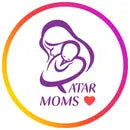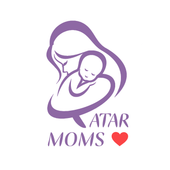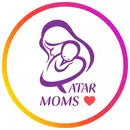The changing weather from sultry summer to cold winter or vice versa, can pose a few challenges in your baby's health since they are more sensitive to weather changes than adults. Babies are less able to regulate their body temperature, they can lose heat quickly nearly 4 times faster than an adult. In this blog we will learn about the illnesses which your baby can get because of weather changing and how to keep your baby healthy through weather changes.
1- Seasonal allergies
If your child develops a "cold" at the same time every year, seasonal allergies might be to blame. It occurs as a result of the sudden weather change to cold at night, with loosening the clothes of the infant, in addition to the smell of dust and fumes in the air.
Allergy symptoms usually come suddenly and last as long as a person is exposed to the allergen. It includes:
- sneezing
- Itchy nose
- Nasal congestion
- Runny nose
- coughing
You can overcome it by:
- Keeping your child away from poorly ventilated places, which are full of dust and smoke.
- don’t expose your child to cold air at night.
- Breastfeed your child regularly, and make sure his bedding and room are clean of dust.
2-Snoring and sneezing
Snoring and sneezing are normal to newborns. They often have noisy breathing, especially in the first six months when they’re sleeping. As well as sneezing a lot. It implies that their nervous system is working properly since sneezing is a reflex controlled by the nervous system when they have irritation of their nasal passages.
Sometimes a baby's sneezing isn’t caused by congestion. It may be because of:
- Allergies during seasonal change.
- Dry air
The nasal passages of newborns are small so the mucus in their noses dries quickly. Snoring and sneezing may occur frequently during winter when the air is dry or when the baby lives in an air-conditioned environment, or in dry weather.
- Tiny noses
Baby's noses are very small and have narrow nasal passages that may attract particles of dust from the environment. A baby may sneeze more often to clear their nasal passages.
- Illness
Newborn sneezing and snoring may also indicate that the baby has a cold.
You can overcome it by:
- Bathing your baby in warm water can help in clearing nasal congestion
- Using Humidifier and steam and if you don't have a humidifier, run a hot shower and sit your baby in the steamy bathroom for a few minutes.
- Making Nasal saline drops. Put one or two drops of saline in your baby's nose and it will help them to loosen mucus. It will be helpful to try this way before feeding.
- Breast milk carefully in your baby's nose while feeding
3- Common cold
A common cold that happens with babies is a viral infection in his nose and throat. Babies have not yet developed immunity to many common infections so that, in his first year he might have six or more colds. The main signs of a cold are Nasal congestion and a runny nose.
Other symptoms of a cold: coughing, fever, low appetite, and fussiness. Since the immunity of a newborn baby is weak, anyone who touches the baby should wash their hands.
Treatment involves:
- providing him with fluids
- keeping the air moist and helping them keep their nasal passages open.
If your baby is less than 3 months, by seeing the first sign of cold, you must see a doctor to be sure that croup or pneumonia and other more serious illnesses aren't present
With every weather change babies affected the most. In order to ensure there health, parents need to take extra care to protect them through the adverse effects of the changing weather. While it's impossible to prevent your baby from ever getting sick, we provided you with some tips to keep him safe and healthy.
 FREE DELIVERY FOR ORDERS ABOVE 100 QAR
FREE DELIVERY FOR ORDERS ABOVE 100 QAR DELIVERY WITHIN 3 HOURS
DELIVERY WITHIN 3 HOURS APPLE PAY AND CARD PAYMENT AVAILABLE
APPLE PAY AND CARD PAYMENT AVAILABLE



